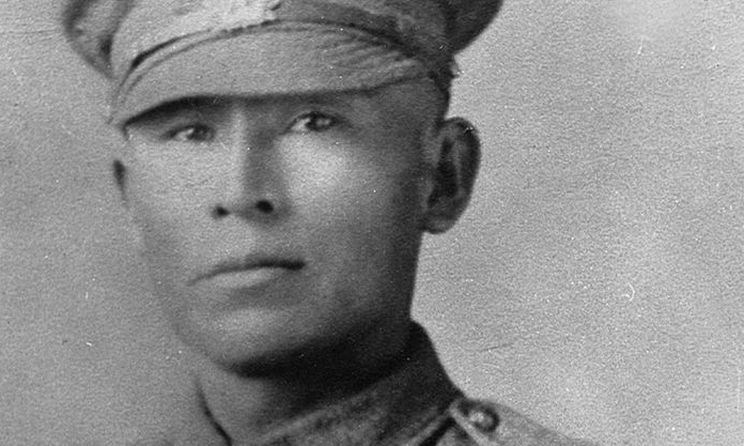A decorated war hero who called both the Wasauksing and Shawanaga First Nations home has made the shortlist of Canadians who have been nominated to be on the next five-dollar bill.
Francis Pegahmagabow was born on Parry Island on March 9, 1891, and died there on Aug. 5, 1952. He was one of the most decorated Indigenous soldiers for Canada during the First World War. Upon returning from the war, Pegahmagabow became a passionate advocate for Indigenous rights and self-determination.
Pegahmagabow, whose First Nation name was Binaaswi (The Wind) was considered by some to be the deadliest sniper of the First World War. He was awarded several medals during the war, including the first bar at the iconic battle of Passchendaele. He also received a second bar as well as the British War Medal and Victory Medal. Pegahmagabow was also credited with capturing more than 300 German soldiers and fatally shooting hundreds more.
He suffered the effects of poison gas during the war, something that gave him chest pains for the rest of his life.
In the early days of the war, Indigenous people were discouraged from becoming soldiers. But as casualties mounted, Indigenous people were encouraged to enlist.
Despite all his heroism and service to his country, the veteran returned home only to again fall under the control of the Indian Act and rules of the Indian agent. That’s when Pegahmagabow began his new battle — this time for the rights of Canada’s Indigenous people.
His granddaughter, Theresa McInnes, is a councillor on the same Wasauksing First Nation Territory Pegahmagabow once called home. She said he was born on Shawanaga First Nation, where he was adopted by band members after being orphaned. McInnes said that he moved to the Wasauksing Territory after he returned from the war because that’s where his father was from.
McInnes said that when she started as a councillor 10 years ago, she was assigned to research her grandfather and help keep the memory of him alive in the community and across Canada. She added that it was an honour and a privilege to learn more about the man, the leader, and the soldier and help preserve his astonishing legacy, that otherwise might have been forgotten.
“He wasn’t just going to war to fight for our First Nations. He was going to war to prove something — this is something he wanted to do and he did it for everyone. That’s just the kind of guy he was,” said McInnes. “He wanted to prove he could do this as a First Nation man. Our First Nation is over the moon. This is the best news.”
She added that there are council meetings this week where she can’t wait to share the wonderful news. She says there is a strong plan in place among community leaders to name the community’s new cultural centre and gathering place facility after Pegahmagabow.
McInnes points out that her grandfather returned from the war as a warrior. She said that’s when he joined the council and went on to become Supreme Chief.
“He was fighting always and this was for his people here on the First Nation,” she said.
McInnes said that it wasn’t until well after his death that Pegahmagabow’s life was chronicled in books and documentaries. She feels strongly that the federal government and others initially treated him as just another Indigenous veteran and said that is shameful. She said her grandfather simply was not treated as the hero he was when he returned to his country that he had served so bravely.
McInnes said it is not lost on her that the Bank of Canada’s shortlist of candidates came out the week of Remembrance Day.
In a statement issued Nov 9, the Bank of Canada stated that the shortlist has been whittled down from a list of 600 eligible candidates and that almost 45,000 Canadians had participated in the process.
The winner is to be announced by the federal finance minister sometime early in the new year, the bank stated.
John McFadden’s reporting is funded by the Canadian government through its Local Journalism Initiative. through the Parry Sound North Star.



